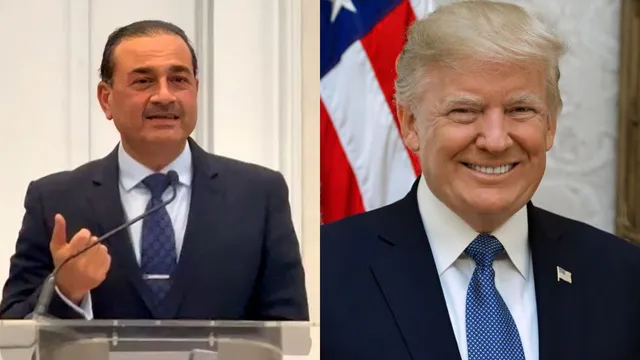In a development that underscores shifting strategic alignments in South Asia, close aides of Pakistan’s Army Chief have reportedly approached the United States with a proposal to build and operate a major port along the Arabian Sea. The offer, if accepted, could mark a significant departure from Islamabad’s traditional reliance on China for infrastructure financing and port development.
According to diplomatic insiders, the proposal envisions a new deep-water port facility designed to handle both commercial and strategic traffic, providing the U.S. with a direct operational footprint in the Arabian Sea. This would not only expand Washington’s maritime reach in the Indian Ocean region but also offer Pakistan an alternative investment partner at a time when its economy is grappling with mounting debt and growing dependence on Beijing.
The move is seen as part of Pakistan’s efforts to recalibrate its foreign policy amid concerns over being overly tied to China through the China-Pakistan Economic Corridor (CPEC). While Beijing’s development of Gwadar Port has been central to CPEC, its progress has been slow, and local discontent has grown over issues of revenue-sharing and security. Pakistani strategists now appear keen to diversify partnerships and reduce overreliance on a single patron.
For Washington, the proposal comes at a time when the U.S. is reassessing its presence in the Indo-Pacific and seeking ways to counterbalance Chinese influence in the region. An American-run Arabian Sea port in Pakistan could offer a dual advantage—securing critical maritime trade routes and re-establishing a foothold in South Asia, a region where U.S. influence has waned since its military withdrawal from Afghanistan.
However, the idea is fraught with challenges. Any U.S. involvement in a Pakistani port would likely provoke strong reactions from Beijing, which has invested heavily in Gwadar and views Pakistan as a key node in its Belt and Road Initiative (BRI). Domestically, Pakistan’s political establishment and public opinion may also be divided, given the long-standing narrative of partnership with China and suspicion of American intentions.
Strategic experts note that the Pakistan Army’s direct role in floating this proposal highlights the military’s dominant influence over the country’s foreign and economic policies. By bypassing the civilian leadership, the military appears to be signaling its intent to take charge of new strategic initiatives aimed at rescuing the struggling economy and rebalancing external relations.
While it remains unclear how Washington will respond, the very fact that such an offer has been put on the table reflects Islamabad’s growing urgency to attract foreign investment and secure geopolitical leverage. If the U.S. entertains the proposal, it could open a new chapter in Pakistan’s external relations—one that would test its ability to balance ties between two global rivals, China and America, while navigating its own domestic challenges.



